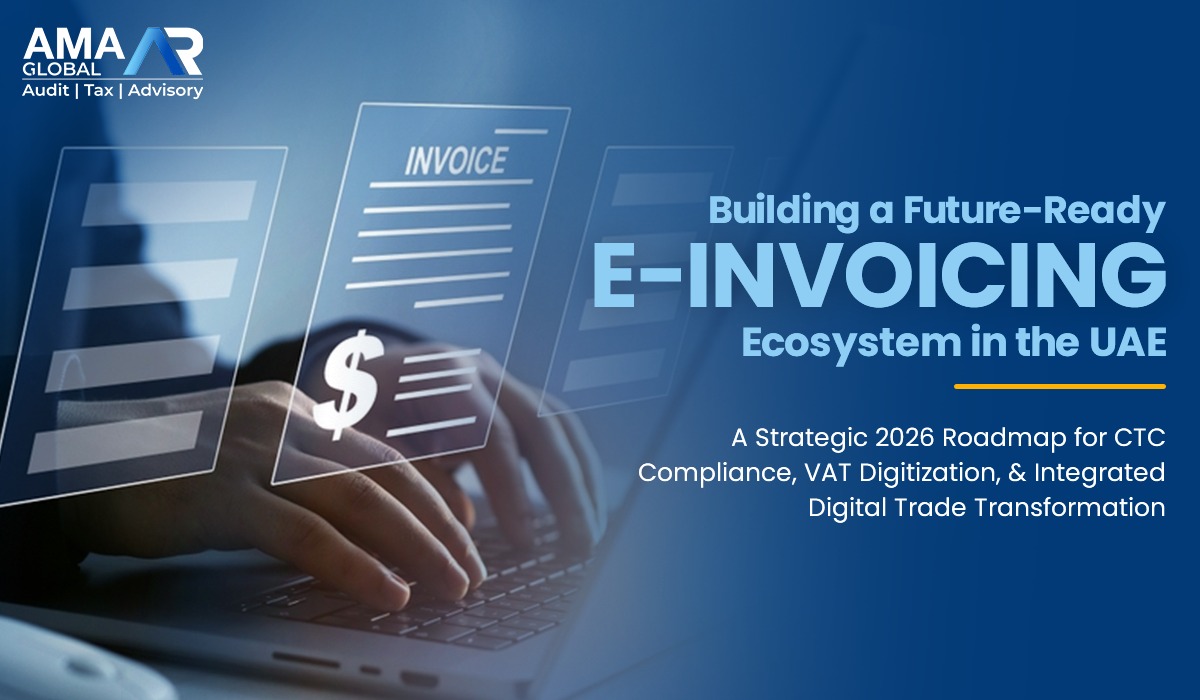Your trusted partner in audit, tax, and advisory services across the UAE and beyond

Since its establishment in 1999, AMA Global Auditing & Tax Consulting has built a strong reputation as one of the UAE’s leading audit and advisory firms, with a presence extending across the GCC, India, Singapore, and the United States. Backed by over 25 years of business excellence, our team of highly skilled professionals brings expertise in audit and assurance, accounting, tax, AML compliance, IT services, and consultancy. By combining deep industry knowledge with global best practices, we deliver seamless, client-focused solutions that ensure regulatory compliance, streamline operations, and support sustainable growth. At AMA, we go beyond traditional auditing—partnering with organizations to strengthen governance, navigate complex regulations, and achieve long-term success with integrity and trust.
AMA supports organizations in establishing their businesses by offering comprehensive Audit and Assurance services, conducting thorough evaluations of various entry options, streamlining procedures, and providing expert advice on governance, regulatory, tax, and compliance challenges.
As an independent member of PrimeGlobal, one of the world’s top three associations of independent accounting and business advisory firms, AMA Global is part of a powerful network spanning 113 countries, 1,200+ locations, 3,800+ partners, and 45,000 professionals. Together, PrimeGlobal firms generate over US$5.4 billion in annual revenue (2024). This affiliation gives our clients access to international expertise, innovative solutions, and global best practices—while we continue to provide the personal attention, independence, and local insight they value.


At AMA Global, we are dedicated to delivering world-class audit, tax, and advisory solutions that drive compliance, efficiency, and growth. Guided by integrity and excellence, we help organizations navigate complex financial landscapes with clarity and confidence.
Our multidisciplinary team offers expertise in Financial Audits, Corporate Tax Advisory, VAT Compliance, Accounting & Bookkeeping, Business Setup Consultancy, and Risk Management. Whether supporting dynamic startups or established multinationals, we design tailored strategies that align with global best practices and local regulatory standards—empowering businesses to achieve sustainable success and long-term value.
Our mission is to empower businesses with comprehensive audit, tax, and advisory solutions that uphold the highest standards of compliance and transparency. We are committed to delivering precise, reliable, and customized services that foster sustainable growth, mitigate risks, and create long-term value for our clients.
Our vision is to be the trusted partner of choice for businesses in the UAE and across global markets—recognized for our integrity, expertise, and innovative approach. We aspire to set benchmarks in financial and advisory services while contributing to the region’s economic development and supporting our clients’ journey toward enduring success.
At AMA Global, we are dedicated to helping businesses and individuals navigate the complexities of tax and regulatory frameworks with confidence and clarity. Our team of seasoned professionals delivers tailored solutions designed to optimize tax positions, strengthen compliance, and support sustainable financial growth.
By combining technical expertise with practical insight, we provide end-to-end advisory services that enable our clients to minimize risks, maximize opportunities, and achieve long-term success in an ever-evolving business environment.

UAE E-Invoicing guidelines explained in a global context. Discover compliance requirements, implementation strategies, CTC trends, and future-ready digital trade frameworks

As the world becomes more stringent on tax transparency, FATCA reporting in the UAE has shifted from a mere regulatory

As UAE E-invoicing moves from concept to reality, the conversation in the market is rapidly shifting. Businesses are no longer
We uphold the highest ethical and professional standards, ensuring honesty, transparency, and fairness in every engagement.
We work closely with our clients, combining teamwork and expertise to achieve their business goals.
We safeguard our clients’ information with the utmost care, fostering relationships built on trust and discretion.
We honor our commitments and deliver consistent, high-quality solutions that clients can depend on.
Reach out to us for all your queries. Assuring you the best solution from the most energetic team at AMA Global Audit Tax Advisory.
Office 204, Bin Otaiba Tower, Electra Street, PO Box 108897, Abu Dhabi, UAE
JMD Building - 406 Damascus Street - Al Qusais - Al Qusais Industrial Area 4 - Dubai - United Arab Emirates
AMA Global Audit Tax Advisory First Floor, Champions Plaza Building, Near Marina Hospital, Pullur Road Irinjalakuda 680121